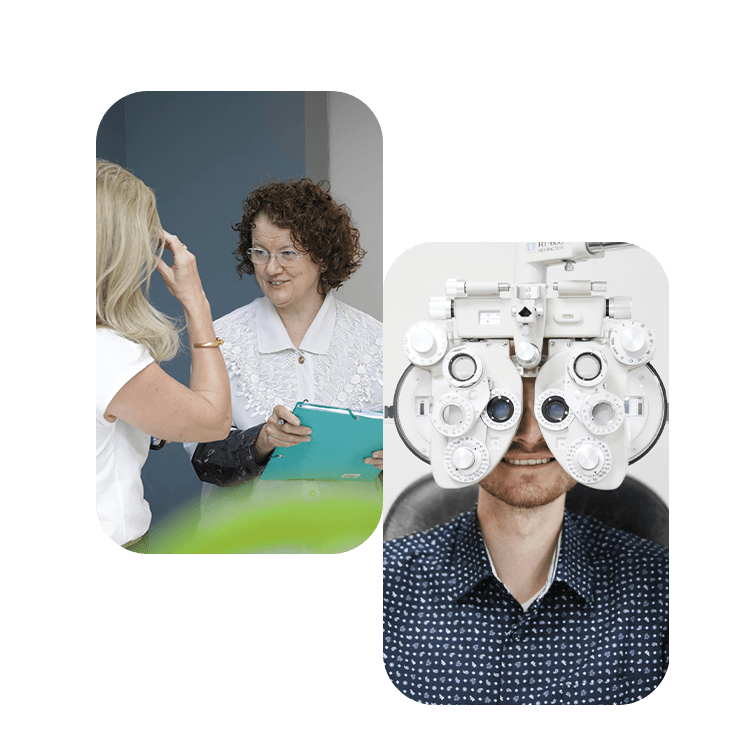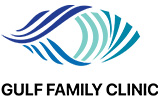Mon - Sat: 8:00 AM - 6:00 PM
Sunday: CLOSED
Eye Care Designed for You
We provide the highest level of eye care in the safest possible environment for your family.
Make an Appointment
Online Schedule

Myopia in Children
Here’s all you need to know about myopia in children and the treatment options for this condition.
Pediatric Ortho-K is orthokeratology for children, a non-invasive way to correct myopia or nearsightedness in children. It involves wearing contact lenses that have been made-to-measure to a child’s eyes and degree of myopia. Custom fitting begins with corneal surface mapping and measuring, and once the custom-fitted lens or lenses are ready, the child wears them overnight.
During this time, the Ortho-K lenses temporarily flatten the cornea, inducing it into a shape that approximates one without refractive issues. With pediatric Ortho-K, your child can enjoy normal vision even without wearing vision-correcting eyeglasses or contact lenses.
Make an Appointment
WhatsApp Us





Frequently Asked Questions About Pediatric Myopia
What causes myopia in children?
Pediatric myopia or nearsightedness in children develops when their eyes grow too long from front to back, causing light to focus in front of the retina instead of directly on it.
While the exact cause of this excessive eye growth is not fully understood, myopia is often influenced by a combination of genetic and environmental factors.
If a child’s parents are myopic, they’re more likely to develop the condition. Additionally, environmental factors such as extensive near work, like reading or screen time, may contribute to the onset of myopia. Recent studies have also found a potential link between a lack of time spent outdoors in natural light and the development of myopia in children.
How do you know if a child has myopia?
Children with myopia typically experience the following symptoms:
- Difficulty seeing distant objects clearly, such as the chalkboard in a classroom, while their near vision remains unaffected
- Squinting or frowning
- Complaining of headaches or tired eyes
- Demonstrating reduced performance or interest in school, sports and other activities requiring good distance vision
- Staying too close to the television and other screens
- Having to hold objects like books and toys too close to their face
These symptoms might indicate that a child is struggling to focus on distant objects.
However, not all children readily express these issues. Therefore, regular eye examinations by an eye care professional are crucial to detect myopia and other vision problems in children early.
What are the treatment options for myopia in children?
The primary aim of treating myopia is to correct the refractive error, improve vision, and manage the progression of the condition.
Treatment options for the management of myopia in children include:
- Eyeglasses or contact lenses are the most common ways to correct myopia.
- Orthokeratology (i.e., pediatric ortho-k), which involves the use of specially designed contact lenses worn overnight to reshape the cornea, may be an option for some children.
- Pharmaceutical interventions like low-dose atropine eye drops have shown efficacy in slowing myopia progression.
If you think your child has myopia or any type of vision problem, it’s critical to consult an eye specialist and have a personalized treatment plan in place.
How can myopia in children be prevented?
While genetic factors influencing myopia can’t be changed, certain lifestyle modifications can help slow down its progression, such as:
- Encouraging children to spend more time outdoors.
- Ensuring they have breaks during periods of intense near work, like studying or screen time, can help.
- Providing optimal lighting conditions while reading or doing close work.
- Regular eye check-ups to monitor any changes in vision.
If myopia is detected early, a suitable treatment plan can be initiated to manage its progression. It’s always advisable to consult an eye care specialist for personalized advice.



